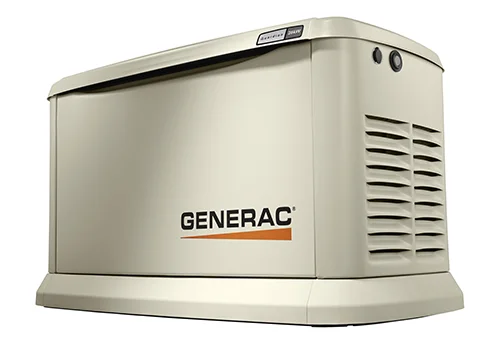
Before running out to buy a generator, it’s important to think about how and where you’re going to use it. There are often laws, rules, and restrictions regarding their use in residential homes, with homeowners associations, at campgrounds, or on construction sites.
Picking the right one means you’ll be able to power up the appliances or equipment you need. Picking the wrong one, or using it improperly, could damage the generator or what is connected to it, at best—at worst, it could be dangerous, posing a risk of fire, electrocution, or carbon monoxide poisoning.
Picking a generator depends mainly on the size of your home and what you wish to power. The average house will take at least 5,000 to 7,500 watts to run only the most critical equipment—think fridge, heat, and water. Often, a portable home generator can get you through an outage, but there are also options that are capable of powering your entire house. If you’re looking for full power, you will want to invest in at least a 10,000-watt generator; this also goes for people with exceptionally large homes or families, which will use more power than, say, a two- or three-person household.
It’s also important to consider that while generators are certainly a hefty investment, they will pass the test of time. Most home standby generators can run anywhere from 10,000-30,000 hours. If you were to use it for 100 hours per year, it should last for 10- to 30 years.
Need more information? Learn more at South Shore Generator Sales & Service, contact us.
Source: popularmechanics
Whether your need is to power your business to keep on your production schedule or your home to keep your family safe and sound, South Shore Generator has the product diversity to meet all of your generator requirements. We are proud to sell and service generators from 2kW to 2000kW single set units and up to as large as 100MW utilizing Generac's innovative Modular Power Systems (MPS).